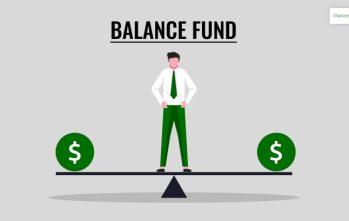Table Of Contents
Understanding Residual Value: What It Is And How To Calculate It?
No matter how big the company is, the process of selling an asset is detailed and time-consuming. With the passing of time, the value of the asset depreciates. In such cases, you will either have to sell your assets at extremely low prices or dispose of your assets. Getting the residual value of an asset will allow you to have an idea of the useful life of the asset, which, in turn, will help a lot in the process of accounting.
In this article, you will mainly learn about what residual value is and what are the uses of residual value in finance and accounting. In addition to that, you will also get a general idea of how to calculate the residual value of an asset. You will come across a formula in the upcoming sections of this article which will help you to calculate the residual value of the asset. Hence, to learn more about the topic, read on through to the end of the article.
Residual Value Meaning

The residual value is the estimated price or value of a fixed asset, provided that the asset is basically at the end of its lease term. The value of the asset at the end of its useful life is the residual value of the asset. If you want to lease one of your assets, you can primarily use the residual value to determine how much the lessee will pay you as periodic lease payments.
Basically, the longer the lease period of an asset is, or the longer the useful life of an asset is, the lower the residual value of the asset. That is, the lease period or the useful life of an asset is inversely proportional to the residual value of the asset. Furthermore, it will also be useful for you to know that the asset residual on a lease also depends on what you expect to receive in return for selling the asset by the end of the lease term, which is also called the useful life of the asset.
However, these factors also do not mean that the residual value is the same throughout. Actually, the residual value of an asset might be calculated differently in different industries. Nevertheless, in all cases, the residual value will influence the total depreciable amount of an asset that the company makes use of.
Salvage Value Vs. Residual Value: What Is The Difference?

There is actually no difference between residual value, scrap value, and salvage value. All three are basically the same thing in accounting terms. All these terms signify the same thing when it comes to assets. However, salvage value is equal to residual value only if there is no cost of asset disposal. You will know about this fact later on in the article.
What Are The Uses Of Residual Value?

The aspect of residual value is used in the cases of leasing cars. For example, if you lease a car for three years, the price of the car after three years is actually the residual value of the car. This is true even if you have temporary car insurance associated with your car.
The balance sheet mainly lists your company’s assets and then shows how your assets get their finances. You must note here that the asset’s cost is recorded on the balance sheet of the company, while the depreciation amount of the asset is recorded in the income statements of the account. Do you know maintaining a balance sheet is one of the high-income skills?
This is how AccountingTools.com gives an example of the residual value of an asset ?
“A company purchases a truck for $100,000, which it assumes will be used for 80,000 miles over the next five years. Based on that usage level, the market prices of similar vehicles indicate that a reasonable residual value would be $25,000. The company then uses this figure as the official residual value for the truck, and only depreciates the $75,000 portion of the truck’s cost that is expected to be used over the expected five-year life of the asset.?
Periodic reevaluation of the assets? estimated value must be done. The salvage value of an asset might get affected due to a variety of factors like market changes, asset deterioration, obsolescence, and many more.
Residual Value Formula: How To Calculate Residual Value?

According to Investopedia,
?To determine the residual value of an asset, you must consider the estimated amount that the asset’s owner would earn by selling the asset (minus any costs that might be incurred during the disposal).?
To formularize, here is how the residual value is calculated:
Residual Value = Salvage Value ? Cost of Asset Disposal
Therefore, you can see from here that the proceeds that you received by the disposition, subtracting the cost of asset disposal from it, give the residual value of the asset. If there is no need for asset disposal, then salvage value becomes equal to residual value.
Here are three different ways through which residual value is calculated:
1. No Calculation Of Value
If the assets have a lower value, then the right thing to do is not to calculate the residual value. This is done by assuming the fact that these assets will not have value at the end of their useful life.
2. Comparing The Value
The residual value is also calculated by comparing it with comparable assets that are currently traded in well-organized markets. This happens a lot in the used-car market.
3. Having A Calculation Policy
Your company might have a policy for the calculation of residual value. The company might make a policy that the residual values of all assets coming under a particular class shall be the same always.
Summing Up
Hence, you understood different ways of calculating the residual value of an asset. You can see from here that generally, residual value is basically the salvage value minus the cost of the disposal of the asset. Hope this article was helpful for you in getting a better idea of residual value and its uses. Share with us some other factors used in the calculation of assets in the comments section below.
Explore More:











Leave A Comment